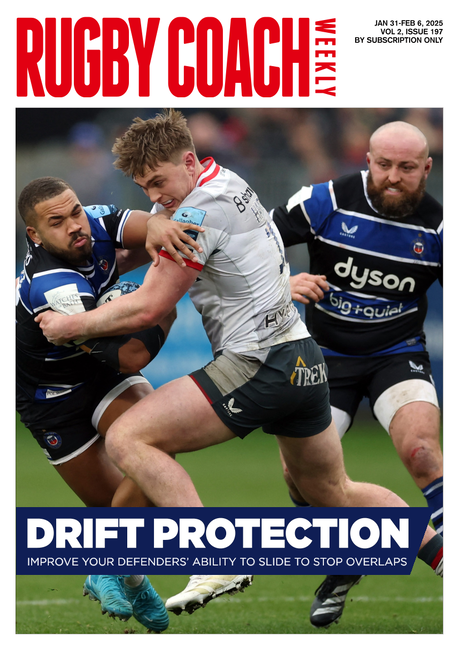Thanks for the feedback The science and art of receiving feedback well

My review of the book Thanks for the Feedback, by Douglas Stone and Sheila Heen.
Feedback is something we coaches are handing out all the time. It’s part of the review process after every game and training session, and at the end of every season. We’re often thinking about whether the feedback is working, if it’s honest enough or perhaps too blunt. We know that some players ask for feedback and others shut up shop the moment we offer any form of criticism.
Feedback can be positive and negative. You might go to the “feedback bank” with a player, depositing some positives before taking out some negatives, allowing them to stay in the black in terms of how they think of themselves.
But Thanks for the Feedback is not about how you give feedback. It’s a far more powerful book than that. It’s about how you receive feedback. The authors, Douglas Stone and Sheila Heen, both law lecturers at Harvard Law School, think that how we receive feedback is critical because the receiver is in charge of what they let in, and how and whether they choose to change.
Therefore the focus is on you. We receive feedback all the time, and sometimes when we don’t ask for it. If your shorts feel tighter than normal, you’re being told either that you might want to alter the heat settings on the washing machine or that you should keep off the chocolate cookies.
Most of us are quite reflective when we’re feeding back to ourselves. We can be quite tough too. “That session was poor, I could have moved away from that activity sooner… spoken to that player differently.”
FRINGE BENEFITS
Stone and Heen say a skilful and thoughtful receiver can draw value out of any feedback – no matter the quality. They advise not waiting for a good coach or teacher to come along because you can drive yourself forward by listening and learning.
There are also extra benefits from becoming good at receiving feedback. The first is that it helps you in your relationships with others. If you’re open, it makes people more likely to engage with you on lots of levels. Shut yourself off and it creates tension and ill will.
Reducing stress and anxiety is a second benefit. Tough feedback is never pleasant. If we can handle it and manage it, we cope better. Sometimes bad feedback just keeps coming in, yet if we can keep some perspective on what’s being said we can recover our confidence more quickly.
WHY FEEDBACK IS TOUGH TO TAKE
We’re programmed to want to learn. Good coaches strive to grow their understanding of the game and how to coach it. We should love feedback, positive or negative. But we’re also proud. Our position as coach means we need to feel respected and accepted. Feedback that is couched as constructive can also threaten this position, and be sensed as criticism.

That’s why this book is so good. We have an image of ourselves as someone who can cope emotionally with criticism and is open-minded. Yet the reality is that we’re human beings, and very different to each other. The book recognises that we each react differently. It provides us with ways to cope, handle and grow with feedback.
Sometimes we keep feedback out and when this occurs the authors split our reactions into three categories:
1 Truth triggers
We don’t take in what’s said because we believe it’s not true. For instance, someone says that your team kicks too much when you know that your players need to gain territory first.
2 Relationship triggers
If we don’t rate or trust someone, why should we want to listen to their feedback?
3 Identity triggers
There’s so much feedback that we cannot work out what is relevant, such as after a heavy defeat.
All these triggers need to be managed to ensure the right feedback comes through and you can make best use of the information.
KNOWING HOW TO SAY NO
It’s also helpful to know what boundaries you need to set. If there’s a constant stream of bad feedback, you can become overwhelmed and stressed. You have to know where to draw the line.
That might seem more difficult when you’re trying to be more open and accepting. Stone and Heen are quick to point out that being better at receiving feedback doesn’t mean you have to accept the feedback you receive.
The more you can engage with the giver of feedback, the better you are at filtering the useful from the ill judged or unfair. Sometimes the feedback is good but isn’t relevant for the moment.
If you want to openly reject feedback, you need to carefully manage the relationship with the person giving it to you.
 Imagine your team analyst or assistant coach making a point over and over again. You must continue to work with that person. You may have to say: “thanks for the feedback, I may not use it.” Or “give me time to think about it.” Or even: “you’ll need to keep your judgment to yourself if we’re going to continue working together.”
Imagine your team analyst or assistant coach making a point over and over again. You must continue to work with that person. You may have to say: “thanks for the feedback, I may not use it.” Or “give me time to think about it.” Or even: “you’ll need to keep your judgment to yourself if we’re going to continue working together.”In telling the person you aren’t going to accept the feedback, using the term “and” is particularly powerful. It can replace “but” subtly and yet effectively.
For example, “you have expertly outlined why we should play Rob at 10 and I’ve decided that I’ll go with my original plan of putting him on the bench.”
You are engaging and still setting the boundary. You have appreciated what they have said and still been firm.
FEEDBACK ON THE BOOK
A word that keeps coming up in this book is negotiation. The authors, along with their Harvard Law School work, sit on something called the Harvard Negotiation Project. You’re plotting a way forward much of the time with the feedback giver. It’s not just whether you agree with the feedback or not, it’s how you accept it.
They say themselves that there’s no one perfect feedback model. Instead, you need a range of tactics and mechanisms to react appropriately. Clam up or not listen and that person may not give you crucial feedback in the future. Making them know they’re valued, or that they might need to modify what they say, may improve feedback in the future.
Well set out, professionally produced and full of stories, Thanks for the Feedback is an easy read, even though it contains painful home truths. Each chapter finishes with a clear summary and there are lots of useful problem-solving boxes.
In short, the advice in this book will easily resonate with your day-to-day dealings on and off the field. It might help make you better at giving feedback. It will certainly make you much better at receiving it.
Newsletter Sign Up
Coaches Testimonials

Gerald Kearney, Downtown Las Vegas Soccer Club

Paul Butler, Florida, USA

Rick Shields, Springboro, USA

Tony Green, Pierrefonds Titans, Quebec, Canada
Subscribe Today
Be a more effective, more successful rugby coach
In a recent survey 89% of subscribers said Rugby Coach Weekly makes them more confident, 91% said Rugby Coach Weekly makes them a more effective coach and 93% said Rugby Coach Weekly makes them more inspired.
Get Weekly Inspiration
All the latest techniques and approaches
Rugby Coach Weekly offers proven and easy to use rugby drills, coaching sessions, practice plans, small-sided games, warm-ups, training tips and advice.
We've been at the cutting edge of rugby coaching since we launched in 2005, creating resources for the grassroots youth coach, following best practice from around the world and insights from the professional game.













